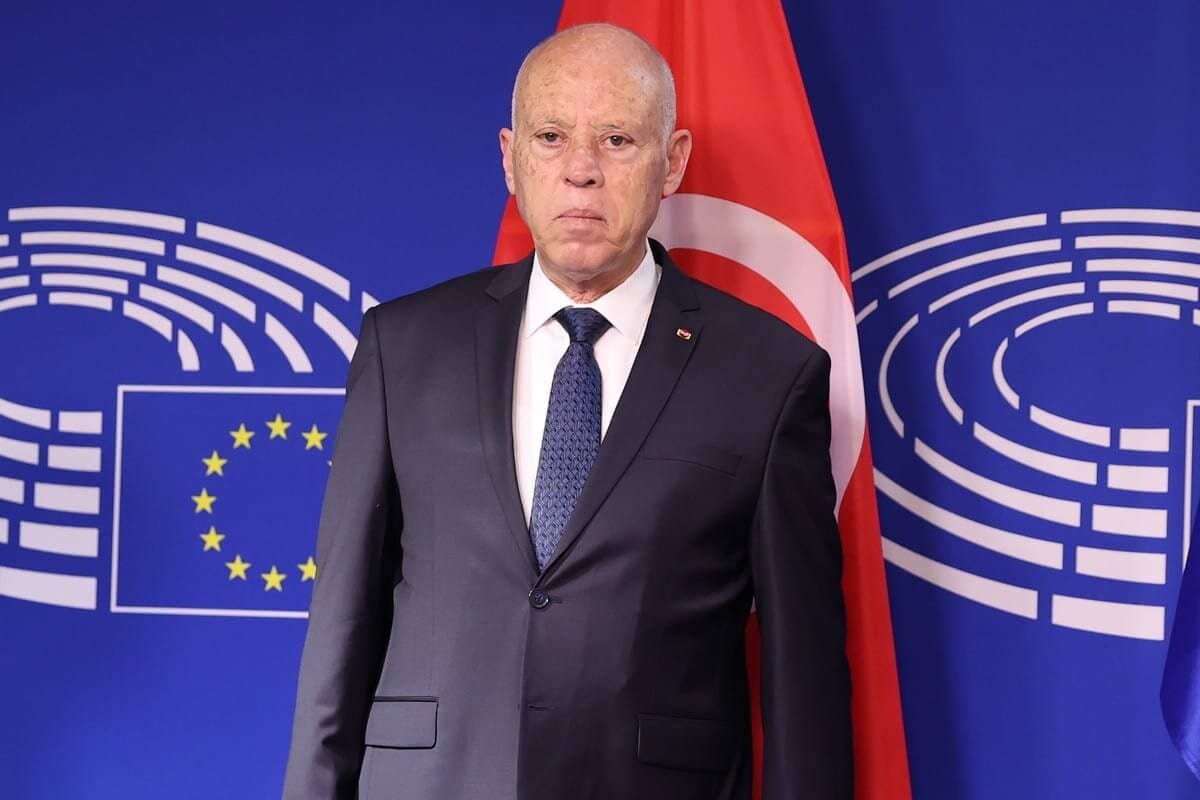Tunisian President Kais Saied has declared that he will rule by decree and suspend parts of the constitution that conflict with his power, leading the country towards further political turmoil.
In a series of tweets on Wednesday, the Tunisian presidency announced the new decisions that will give the President unlimited powers. “The provisional Commission to review the constitutionality of draft laws is abolished. And the President will prepare draft amendments on political reforms with the assistance of a committee to be set up by presidential decree,” it stated.
The presidency added that “exceptional measures” to organise legislative and executive powers have been enacted. It would enable Saied to adopt new legislation by decree, appoint the Cabinet, and make fundamental policy decisions without any interference.
Also Read: A Decade After the Success of the Arab Spring, Is Tunisia Following Egypt’s Path?
Furthermore, Saied issued a decree “extending the freezing of parliamentary powers and the lifting of the parliamentary immunity, and putting an end to the salaries and privileges granted to the Parliament members and the speaker.”
In a speech at the Sidi Bouzid governorate on Monday, Saied said the exceptional measures adopted on July 25, including the suspension of the parliament, would continue. “There is no question of going back on the decisions of July 25,” Saied stressed, adding that these measures were meant “to save the country from an imminent danger.”
Saied has frequently alleged that several Tunisian parties, especially the Islamist Ennahda Party, are a danger to the future of Tunisia and accused them of “seeking to sow chaos and disorder in the country.” Warning that “the danger still exists,” Saied said he “cannot leave the state as a puppet moved by threads behind the curtain.”
Last week, Saied claimed that the country was being run by a “mafia”, and he had no intention of engaging with thieves, referring to several political parties without taking names.
Saied’s latest moves were denounced by Rached Ghannouchi, the leader of the Ennahda Party, on Wednesday. Ghannouchi informed that the announcement effectively cancelled the 2014 constitution and said his party would not accept the decrees.
In July, Saied dismissed the country’s Prime Minister (PM), indefinitely suspended the parliament, lifted the immunity of all lawmakers, and said he would appoint a new PM. The decision was condemned by the opposition, who called it a coup. The Ennahda Party said it was “unconstitutional, illegal, and invalid” and marked a “return to dictatorship.”
Saied quoted Article 80 of the Tunisian constitution to justify his actions. As per the Article, in the “event of imminent danger” to the Tunisian republic, the President “may take any measures necessitated by the exceptional circumstances.” It adds that the President should consult with the PM and Speaker of Parliament before taking any action and that any such measures must ensure “a return to the normal functioning of state institutions and services.”
Many Tunisians have favoured the President’s seizure of power amid simmering public fury over the ruling government’s inability to deal with the country’s economic crisis, made worse by rising COVID-19 cases. As a result, Tunisians have largely supported Saied’s intervention hoping that he would introduce much-needed reforms.
However, rather than bringing any reforms, Saied has consolidated more power and is yet to deliver on his promise of appointing a new parliament and PM. Saied has also cracked down on dissent and arrested several lawmakers, including ex-presidential candidate Nabil Karoui.
Against this backdrop, Saied’s intervention and his latest announcement threaten to undo the democratic gains made by Tunisia following the 2011 revolution that sparked the wider Arab Spring protests.

